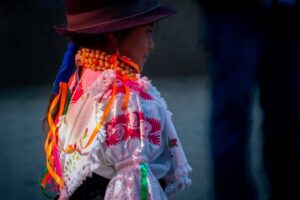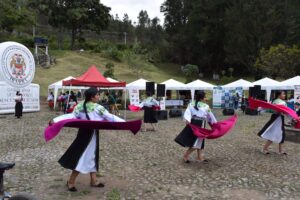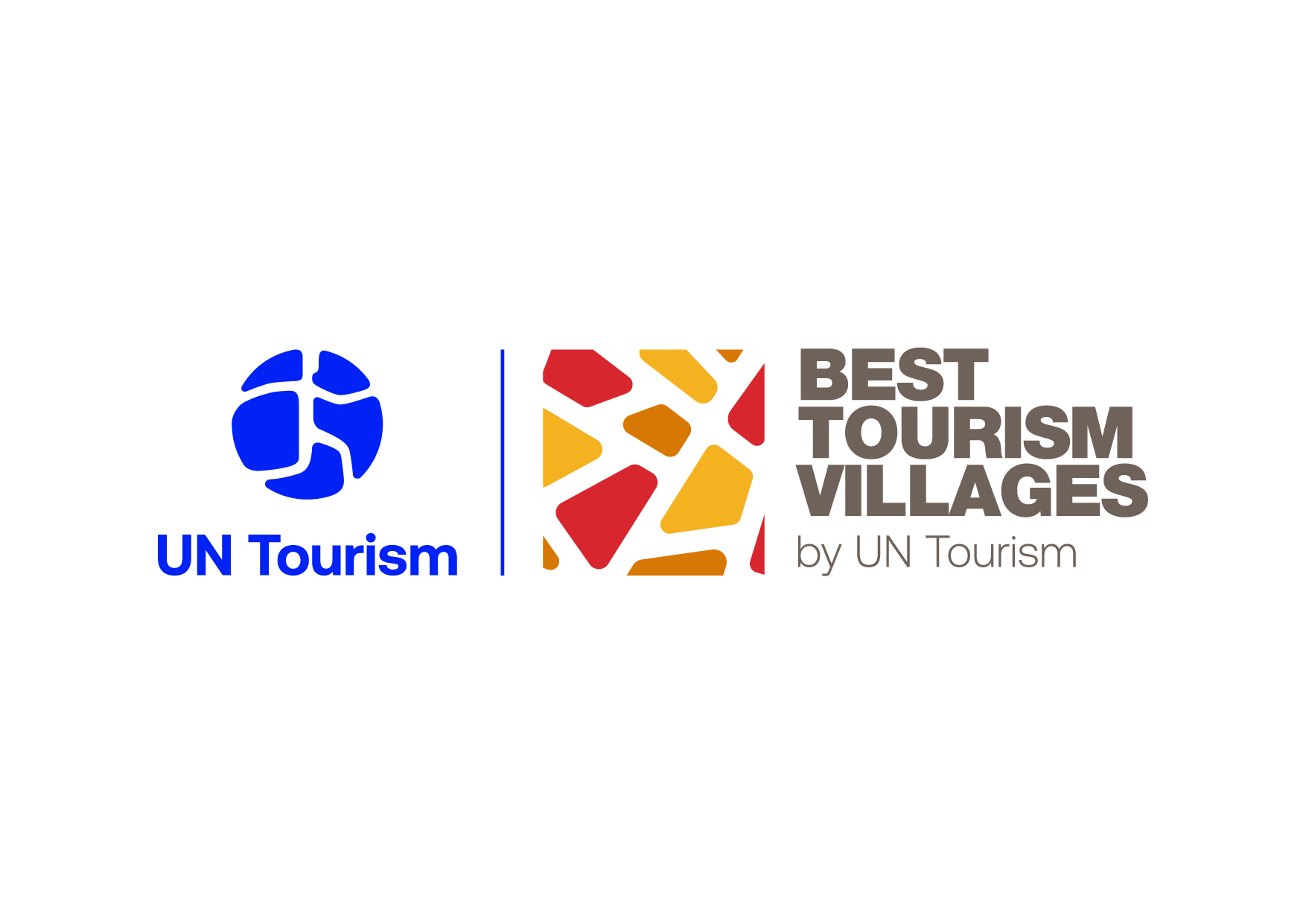Close collaboration amongst hosts and visitors
The village of Angochagua is a diverse territory that aims to preserve the ancestral heritage of the Caranqui people, along with its native language Quichua, its cosmovision, its medicinal plant practices, and the traditional cuisine which uses endemic grains and cereals.
Angochagua is part of the Imbabura World Geopark, the first and only UNESCO site of its kind recognised in Ecuador. This came about as a result of the conservation, and holistic sustainable management of the unique geological territory, which comprises high natural and cultural diversity.
Experiential tourism is an essential part of the daily activities in Angochagua. Visitors participate in carrying out typical rural activities including milking, feeding small animals such as guinea pigs and chickens, preparing local food and creating handicrafts such as pottery. These activities strengthen the connection between visitors and hosts, motivating tourism entrepreneurs to create new authentic and sustainable products.
Angochagua has prioritized the valorisation of its cultural heritage, especially through handicrafts. Hand embroidery is a traditional art with a history which spans more than 150 years. Fabrics are beautifully ornamented with coloured textile threads by the skilful hands of women who create their own nature inspired designs. Another demonstration of traditional handicrafts in Angochagua is pottery, a technique for making ceramics from clay for the creation of pots and other utensils based on the technique used since pre-Columbian times. These handicrafts are practiced in Angochagua as an alternative source of income, and more importantly as a way of rescuing and strengthening cultural traditions.
The traditional cuisine in Angochagua is a testimony to the rich cultural heritage of this village. The Ruta del Borrego Asado or “Roasted Goat Route” encourages local production by using Andean products, as well as authentic methods of preparation as an opportunity for work and conservation of the culture.
HIGHLIGHTS
-

Community organization
The community organization process considers the participation of all actors in decision-making. To facilitate this, community assemblies are held which offers a forum where everyone can contribute their ideas and observations. Assemblies are held periodically where discussions take place regarding proposals, motivations and ideas.
From these discussions, workshops, inter-sectoral tables, and other multi-stakeholder spaces are formed to develop strategies towards achieving sustainable tourism.
-

Empowering entrepreneurs
A total of 80 tourist entrepreneurs have been trained through the municipal government of Angochagua. The training program is an articulated effort between municipal and provincial governments, universities, and local businesses. The training is aimed at local entrepreneurs on themes such as gastronomy, food handling, biosecurity, basic accounting and pricing, customer service, and tourist guidance to name but some.
-

Conservation and management of natural resources
The commune of Zuleta is part of the “Socio Bosque” Network, an initiative that conserves the Andean paramo through economic incentives. There are 40 community guards and 6 park rangers who actively monitor and protect the forests and moors.
In addition, reforestation programs whose objective is to protect several native species are carried out in Angochagua. To achieve this, a native species nursery was developed which has a production capacity of 50,000 plants. Water sources are conserved with micro-basin management plans.
These processes involve the participation of government actors such as the Ministry of Environment and the provincial government, as well as actors from the financial system and the local community.

